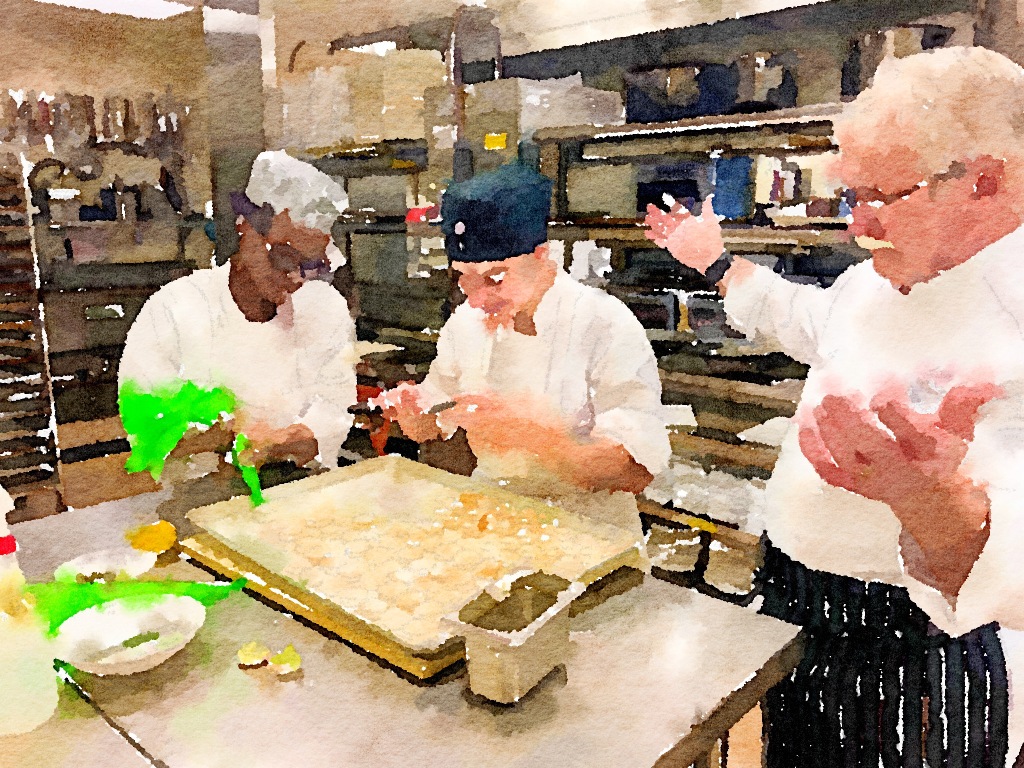
The good news is that restaurants are beginning to see an increase in sales as more and more customers return to in person dining in addition to their new habit of ordering for home delivery. So, as life starts to transition to a level of normalcy, restaurants may find that the pandemic opened the door to a viable, additional source of revenue that isn’t going away.
The not so good news is that labor issues continue to plague all restaurants from fine dining to quick service, and supply chain challenges are limiting availability and in conjunction with inflation pushing prices of raw materials to unprecedented levels. There are a number of possible solutions, but not all of them positive. Restaurants could choose to raise prices, reduce portion sizes, or lower quality standards to make up the difference, or take a more proactive approach without alienating guests or impacting their reputation for quality.
One way to approach a viable solution is to modify how we do business, what we sell, and the skill set that makes sense for today’s cook.
SOLUTIONS and the NEW SKILL SET:
[] Smaller Menus
- SKILL SET: Too many factors are making it difficult to maintain large, diverse menus. Cook and chefs will need to deal with it and learn how to keep their work exciting. Striving for excellence will be the name of the game – set your eyes on perfecting skills, flavors, and presentations and take pride in being the best at what you do.
[] Move Away from Premium Proteins
- SKILL SET: Today’s cooks will need to shift from reliance on cooking high end proteins such as prime steaks and chops, the most common species of fresh fish, and over-used poultry items and become familiar with less common cuts of beef and pork and underutilized poultry items such as shoulder, shanks, thighs, and legs. It will be important to understand the anatomy of animals, fat content, muscle grouping, and the best methods of handling these excellent ingredients that are used far less frequently in restaurants.
[] Alternate Cooking Methods
- SKILL SET: Grilling and sauté methods typically rely on cuts of meat that are inherently tender and/or marbled with fat to impart flavor and moisture. Cooks will need to master alternative methods such as braising, poele, poaching, sous vide, and low and slow smoking that in the end provide opportunities to tenderize and enhance the flavor of lesser utilized cuts.
[] Cross Utilization to Minimize Waste
- SKILL SET: Knowing how to maximize utilization through fermentation, marination, curing, and canning will be as important as preparing items in more traditional manners. Using everything from hoof to snout will be the price of admission for todays and tomorrow’s cooks.
[] Variety on the Plate
- SKILL SET: One way to not only reduce costs, increase profit, and build an even better guest experience is to offer variety on the plate. Less emphasis on the protein and more variety of vegetables, starches, relishes, chutneys, and salsas will become a very effective way of addressing the challenges that restaurants may continue to face for some time.
[] Fluid Menus
- SKILL SET: A cook’s repertoire will need to expand. Menus will tend to be smaller and more in tune with the seasonality of ingredients. Menus that change weekly or even daily will become the norm and cooks will need to readily adapt. Reliance on strong foundational cooking skills will remain paramount, but fluid menus will likely include mastering sous vide, marination, preparation of fresh charcuterie, low and slow methods like braising and bar-b-que, and the like.
[] Grow Your Own
- SKILL SET: When possible, the farm to table movement will include a restaurant’s ability to grow some of their own ingredients. Growing and harvesting herbs, salad greens, tomatoes, beans, zucchini, and even root vegetables for canning will continue to grow in popularity. Cook’s will need to have a passion for gardening since it may become part of their job.
[] Teaching – Awareness
- SKILL SET: Chefs will need to teach cooks and cooks will need to monitor each other’s compliance with the rules of sustainable cost control. Full utilization of ingredients, minimizing waste, composting and portion control will be even more essential than they were in the past.
Cooks and chefs need to update and enhance their skills to build their personal brand and make a difference in an ever-changing restaurant business. Are you working in this direction right now?
PLAN BETTER – TRAIN HARDER
Harvest America Ventures, LLC
www.harvestamericacues.com BLOG
CAFÉ Talks Podcast

Leave a comment